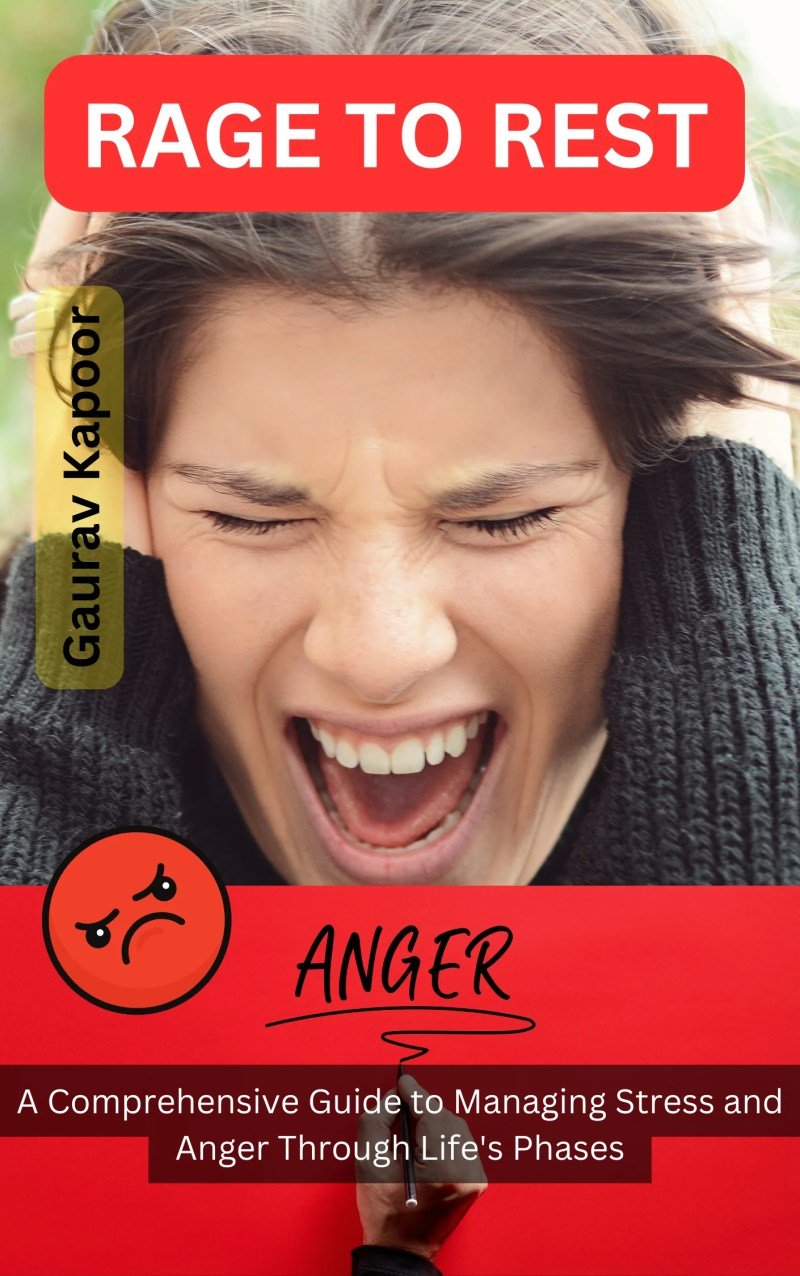How To Deal With Anger And Rage – Everyone is angry. But anger can affect physical and mental health. Anger management is a type of therapy that improves assertiveness and communication skills. It also teaches relaxation techniques to cool down.
Anger management is how we deal with situations that make us angry. It is also a type of behavioral therapy (sometimes called therapy) that can be done in individual or group counseling. You can even take an anger management class. In anger treatment, you work with a mental health provider to identify when you feel angry and develop coping skills and strategies to help you deal with these feelings in a healthy and sustainable way. You will learn the following:
How To Deal With Anger And Rage

In some cases, your therapist may recommend that you see a doctor to help you deal with psychological problems, such as anxiety or depression, which often cause chronic anger problems.
How To Deal With Your Rage: Tips For Managing Anger
Anger felt his heart pounding in his chest as he tried to squeeze his car into the smallest parking spot while his neighbor pulled into the driveway. It’s the feeling that makes you wave in the rearview mirror or mutter something under your breath when someone stops you in traffic. Or shout out for a year-long sports team. You can let a toddler eat – or a teenager go into their room and close the door – if they don’t get their way.
So what’s behind all this? Anger is an emotional response to a situation that motivates you to change. It stimulates your sympathetic nervous system, which triggers a fight-or-flight response that causes a series of physical changes. Heart rate and breathing rate. Your body is flooded with stress hormones and more blood is pumped to your muscles. His focus increased. What this means is that you have more resources to save yourself from harm. But anger stress is not always related to physical threat. You can also get angry in social situations, for example, when you quarrel with a friend or loved one, when you perceive injustice, when needs are not met, or when you are ridiculed.
Everyone experiences anger differently, depending on their personal and relationship history, health, and current situation. Some people get angry faster and feel more strongly than others. It can range from mild to full-on rage.
Suppressing (not releasing) your anger can affect your thinking and behavior and cause (or exacerbate) a number of physical problems. If you get angry more often, health professionals call it chronic anger. Chronic anger is linked to health problems, including:
Calming Bible Verses About Overcoming Anger Issues
Anger is a very common and natural emotion. It can be harmful or beneficial – it depends on how you deal with it. If you try to pull into that parking spot and fail, it might take a minute for the feeling in your chest to go away before you leave. Or you can get out of your car and leave a sharp note on your neighbor’s windshield. He is angry in both scenarios. But in the first scenario, notice the anger and let it go. In another, it spreads negatively around. And maybe I’ll live with you until the end of the day.
Anger is a very useful emotion. But if you get angry more often than you’d like, or if it starts to affect your work or relationships, it’s time to get help with anger management.
Learning anger management skills can benefit anyone. And if you have mental health issues, anger management therapy can make a big difference in the quality of your life and relationships. These conditions include:
/cdn.vox-cdn.com/uploads/chorus_image/image/73058449/Vox_Anger_ClaireMerchlinsky.0.png?strip=all)
Cleveland Clinic is a nonprofit academic medical center. Advertising on our site helps support our mission. We do not endorse Cleveland Clinic products or services. Process
Anger Management Strategies To Calm You Down Fast
In anger therapy, you learn coping skills to help you understand what makes you angry and what anger looks like for you. Your therapist may ask the following questions:
You will then work with your therapist to develop coping skills or strategies. These are useful skills and things you can do when you feel angry. Anger management skills include:
You will also practice these new skills with your therapist during your therapy session. Anger management classes often include exercises in addition to therapy sessions. You will need to practice your new system until you can control your anger (reduce the number or intensity of your tantrums) and the patterns start to become more natural.
There are many different approaches to anger management therapy. It also changes depending on your age, so it’s different for your student than your teenager, and different for you as a parent. Your approach to therapy will depend on their previous experience and what they think will be best for you.
Transforming Anger: The Heartmath Solution For Letting Go Of Rage, Frustration, And Irritation: Doc Childre, Deborah Rozman, Matthew Mckay: 9781572243521: Amazon.com: Books
With anger management therapy, you may find that your relationships at home and at work improve. You have more control over your emotions. You may even sleep better and be less likely to develop certain diseases.
During anger management therapy, you may feel less comfortable talking about your feelings. Once you build a trusting relationship with your therapist, they can ask you questions about your past and bring up old hurts. But dealing with unpleasant thoughts and memories is often an important step toward feeling better about your daily life.
Anger therapy usually involves a series of sessions with a therapist over several months. If you’re motivated to exercise, you’ll see the results of your new routine quickly.

Your relationship with your therapist can continue beyond anger management sessions, and it’s normal to revisit therapy as things change in your life. For example, the anger management skills you have as a teenager are different from the skills you need as a parent of a young child. Work situations change and life events happen, so give yourself some grace and don’t beat yourself up if your anger management needs a little tweaking.
All The Rage: Healthy Ways To Respond To Anger
Contact your doctor immediately if your symptoms worsen or if you are concerned that you may harm yourself or others. If it’s after hours or you’re worried, call 988 for suicide and life crisis.
Anger is a normal part of being human. But sometimes it can get out of hand. If you find that you often get angry or have hurt a loved one with harsh words or actions, you may benefit from learning anger management skills.
Learning about negative events and feelings can be painful. Therefore, it is important to choose a therapist carefully. Find a licensed therapist trained to teach anger management and assertiveness skills. But you’ll be spending hours with your therapist during treatment, so it’s important to find someone who understands you. Don’t be discouraged if it takes a few tries to find the right level. Anger is a completely natural emotion, and it’s normal to feel angry when faced with injustice. However, whether this inconsistency leads to tantrums depends on how you deal with it. Anger is dangerous when it hurts you or others. Anger management problems can lead to the loss of relationships and opportunities, such as work and education, and can also lead to a loss of independence as a result of, for example, criminal convictions.
While it is important not to give in to anger, it is important to control your anger, as the consequences can be severe and lead to police contact with the criminal justice system. It is important to stay calm in order to reduce the negative effects of anger and to ensure that outward expressions of anger do not negatively affect your relationship. Sometimes this calmness can be achieved through anger management therapy and training, where a professional can teach you calming techniques to manage your feelings of anger.
How To Stop Being Angry At Yourself For Your Mistakes
While everyone gets angry at some point in their lives, sadness is temporary and often the feeling that your emotions boil over to the point where they affect your relationships with family members or friends, peers, and even yourself. it is important to know the difference between mental or physical.
If you feel any of the following happening regularly, you may have an anger problem:
Any combination of the above behaviors that can affect relationships or mistrust can indicate anger management problems.

There can be many reasons for anger, it can vary from person to person. Some common causes of anger problems may include:
How To Deal With Angry Patients: A Rad Tech’s Guide
Whatever the reason for your anger, it is important that people learn to control their anger before it becomes a serious problem.
If you express feelings of anger externally or internally, the people and places around you may seem to be causing your anger. It’s really how you interpret these situations in your mind and thought processes that immediately controls the scene
How to deal with hurt and anger, how to deal with frustration and anger, how to manage rage and anger, how to deal with anger and stress, how to deal with anger and depression, how to deal with rage and anger, how to deal with rage, how to deal with anger and anxiety, how to deal with anger, how to deal with sadness and anger, how to control rage and anger, how to deal with anger and resentment
